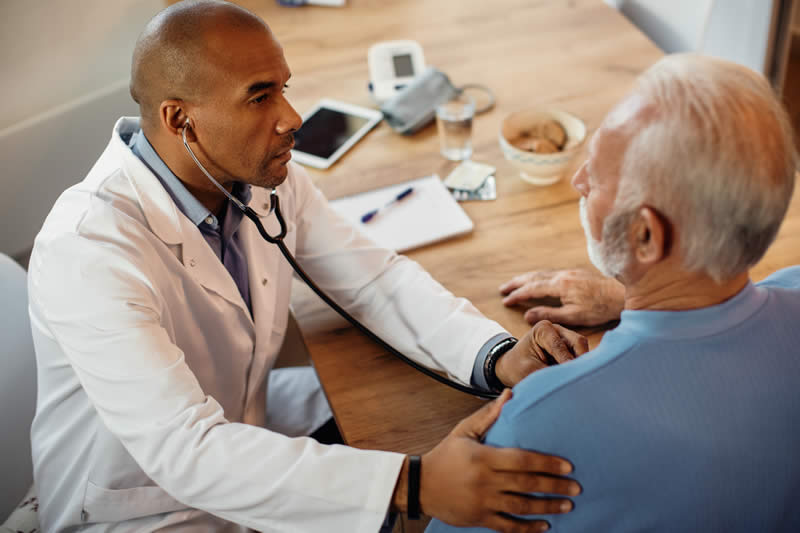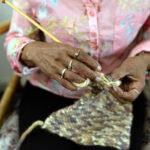Look after your liver
This World Liver Day, ask yourself: how much care do you take of this vital organ?
Diabetes, cardiovascular health and arthritis are often spotlighted in discussions on health, yet many do not know the importance of the liver – a vital organ which provides a wide range of functions crucial to your overall health and well-being. Located on the right-hand side of your abdomen, just beneath your diaphragm and above your stomach, it’s the second largest organ after the skin.
What does the liver do?
Your liver performs a vast array of biochemical and physiological functions – as many as 500 according to some sources. Whilst we may not be able to measure everything the liver does, its main functions are:
- Metabolism – it converts carbohydrates, fats and proteins into energy.
- Bile production – it produces bile, which is essential for digestion and absorption of fats.
- Storage – it stores essential nutrients such as vitamins and minerals for future use.
- Regulation of blood glucose – it helps maintain stable blood glucose levels by storing glycogen and releasing it when needed.
- Immune function – it helps remove bacteria and toxins from the bloodstream.
- Cholesterol metabolism – it helps regulate cholesterol levels in the body.
- Hormone regulation – it metabolizes hormones and regulates their levels in the bloodstream.
- Detoxification – it filters and detoxifies harmful substances like drugs, alcohol and metabolic waste products.
Effects of alcohol abuse on your liver and your life
Despite its major function being detoxification, it doesn’t mean you should push your liver to its limits. Alcohol abuse can lead to an array of health complications and life changes. 62-year old Ravi Reddy, shares his story of how he turned his life around when he gave up alcohol 10 years ago.
Liver disease
Common diseases range from mild conditions like fatty liver disease to more severe ailments such as hepatitis and cirrhosis.
Fatty liver disease: This condition occurs when fat accumulates in the liver, leading to inflammation and potential damage. Non-alcoholic fatty liver disease (NAFLD) is often associated with obesity, type 2 diabetes, and high cholesterol. Alcoholic fatty liver disease (AFLD) results from excessive alcohol consumption.
Viral hepatitis: Hepatitis viruses (hepatitis A, B and C) cause inflammation of the liver. Hepatitis A can spread through contaminated food or water, while Hepatitis B and C are spread through unprotected sex, sharing needles, blood transfusions or from mother to child during childbirth. Vaccinations are available to prevent Hepatitis A and B.
Cirrhosis: Cirrhosis is the late stage of scarring (fibrosis) of the liver caused by long-term liver damage from various conditions such as chronic alcohol abuse, viral hepatitis, or fatty liver disease.
Liver cancer: Liver cancer can arise from primary tumours or metastasis from other cancers. Chronic liver diseases like cirrhosis, Hepatitis B, and Hepatitis C increase the risk of developing liver cancer.
Autoimmune liver diseases: Conditions like autoimmune Hepatitis, primary biliary cholangitis, and primary sclerosing cholangitis involve the immune system mistakenly attacking the liver and bile ducts. While the exact cause of these diseases is unknown, maintaining overall health through a balanced diet and regular exercise may reduce the risk.
How do you know if you have liver disease?
Symptoms vary depending on the underlying cause and severity of the condition. But you should see your health practitioner if you experience any of the following:
- Fatigue: persistent tiredness and weakness, even with adequate rest, are common symptoms of liver disease, as well as many other conditions.
- Jaundice: yellowing of the skin and whites of the eyes occurs when the liver is unable to properly process bilirubin, a yellow pigment produced during the breakdown of red blood cells.
- Abdominal pain and swelling: pain or discomfort in the upper right abdomen, often accompanied by swelling or bloating, can occur due to liver inflammation or enlargement.
- Dark urine: urine may appear dark yellow or brownish due to the presence of bilirubin, indicating liver dysfunction.
- Pale stools: stools may become pale or clay-coloured due to a lack of bile pigment.
- Nausea and vomiting: persistent nausea, vomiting, or loss of appetite can be symptoms of liver disease, especially in advanced stages.
- Unexplained weight loss: significant, unexplained weight loss is always a red flag that should be investigated. It may be caused by a number of conditions, including liver disease.
- Itchy skin: pruritus, or itchy skin, can occur when bile salts accumulate in the bloodstream.
- Easy bruising and bleeding: impaired liver function can lead to decreased production of blood clotting factors, resulting in bruising and bleeding, including nosebleeds.
- Fluid Retention: accumulation of fluid in the abdomen or legs can occur due to impaired liver function.
It’s important to note that many of these symptoms may be caused by other conditions, and those suffering from liver disease may not experience noticeable symptoms, especially in the early stages. Regular medical check-ups and screening tests for early detection are essential to identify and manage liver disease.

Regular medical check ups lead to early diagnosis and treatment.
Keeping your liver healthy
Clearly, the liver is crucial to good health, and you need to look after yours. Make a change today and adopt some of these preventive measures to take better care of yourself:
- Limit alcohol consumption: excessive alcohol intake increases the risk of liver damage and other health conditions. Drink in moderation or avoid alcohol completely to protect your liver.
- Eat a balanced diet: aim for a diet rich in fruits, vegetables, whole grains, lean proteins and healthy fats. Avoid excess sugar and saturated (animal) and trans fats.
- Maintain a healthy weight: being overweight puts strain on your heart and lungs, as well as your liver. Regular exercise and a healthy diet help prevent weight gain.
- Stay hydrated: drinking eight or more glasses of water daily helps flush toxins from the body and supports overall liver function.
- Practice safe sex: use protection to reduce the risk of contracting sexually transmitted infections, including Hepatitis B and C which cause inflammation of the liver.
- Limit exposure to toxins: minimize exposure to environmental toxins and chemicals by using natural cleaning products and avoiding unnecessary exposure to pesticides and pollutants.

Drink plenty of water and cut down on alcohol to promote liver health






 Concern and confusion over SASSA Old Age Grant payments
Concern and confusion over SASSA Old Age Grant payments Vote for us in the KZN Top Brand Award
Vote for us in the KZN Top Brand Award Men’s health – signs older men shouldn’t ignore
Men’s health – signs older men shouldn’t ignore Tafta commemorates Elder Abuse Awareness Day – staff say ‘No’ to elder abuse
Tafta commemorates Elder Abuse Awareness Day – staff say ‘No’ to elder abuse Elder Abuse – it’s not always what you think
Elder Abuse – it’s not always what you think Holiday fun that doesn’t break the bank – inexpensive activities for grandparents
Holiday fun that doesn’t break the bank – inexpensive activities for grandparents Old school ‘Granny Crafts’ promote mental health
Old school ‘Granny Crafts’ promote mental health Tafta Golf Day at Cotswold, a swinging success!
Tafta Golf Day at Cotswold, a swinging success! Come visit us – Tafta Open Days this May!
Come visit us – Tafta Open Days this May! Sleep Quantity vs. Sleep Quality – what matters most for healthy ageing?
Sleep Quantity vs. Sleep Quality – what matters most for healthy ageing?